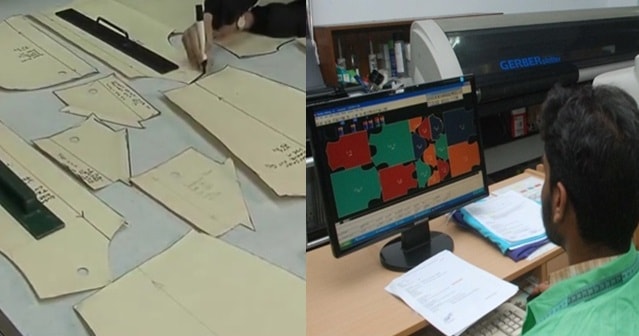
Textile flocking
What is textile flocking?
Textile flocking is one of the most known printing systems to the general public. Widely use in the world of sport, it is use in particular for the marking of t-shirts.
This technique involves printing a design onto a flexible roll, which is then cut out with a cutting plotter. The flexible material is then glue to the fabric using a heat press.
Advantages of textile flocking
- Multi-media prints (textiles)
- The shelf life of the product in good condition is correct
- The order can be individually personalize
Disadvantages of textile flocking
- The pattern must be simple
- The pattern must be lightly colore and not have a special color
- This marking technique does not manage gradients
Textile flocking use case
Flocking is often use for simple, light-color visuals in small and medium series. Having a relatively correct lifespan, this technique lends itself easily to the world of sport.
Direct screen printing
What is direct screen printing?
Direct screen printing is an artisanal process that remains one of the oldest textile printing techniques. This process is “a classic” in the world of textile printing.
On the technical side, this consists in using screen printing screens which function as stencils to pass the ink on the textile to be mark. The ink is diffuse on the textile thanks to a taut mesh. This allows for color-by-color printing on clothing.
Advantages of direct screen printing
– It is a durable product over time
– Thanks to its ink deposit, the final appearance is of high quality. The colors keep their shine from the first day
– Well suit for small and medium series
Disadvantages of direct screen printing
– The minimum quantity changes depending on the complexity of the pattern and the number of colors
– The rendering of complex patterns, including details, is often disappointing
Use cases for direct screen printing
Direct screen printing is more suitable for producing simple textiles, with low complexity patterns and few colors.
Screen printing transfer
What is screen printing transfer?
Screen transfer is a high quality textile printing solution.
This technique consists in depositing inks on a transfer paper and then, in a second step, in transferring it to a textile support using a heat press.
Advantages of screen printing transfer
– High quality rendering that lasts a long time! Repeat washing does not affect the quality of the product
– Excellent color management: from single-color to four-color, including multi-colors
– Impeccable installation on all media: t-shirts, caps, luggage, coats whether light or dark
Disadvantages of screen printing transfer
– The final rendering depends greatly on the quality of the initial file provide
– Gradients are only possible on a solid color with a white in support. Fading gradients are only possible on white textile
Use case of screen printing transfer
Screen printing transfer can be use for small and large series, and for any type of textile. It is particularly suitable for visual communication of organizations.
Sublimation by transfer
What is transfer sublimation?
Sublimation is a more modern marking technique using ink. This consists of printing, using a high-quality printer and on special paper, a visual using sublimation inks. The paper is then press, using a heat press, on the garment and then remove. In fact, the ink is directly inject into the fabric.
Advantages of transfer sublimation
– Since the ink is inject directly into the fabric, the design is indelible! Therefore, it is resistant to weather and hazards.
– Excellent management of colors and contrasts
– High-quality rendering on polyester, lycra, etc …
Disadvantages of transfer sublimation
– The choice of textile is limit both for the color and for the material
– The costs of this type of service are high
Use case of transfer sublimation
Sublimation printer in Pakistan is mainly use for quality rendering on white textiles. This technique is ideal for sports and technical clothing.
Textile embroidery
what is it?
It is the oldest of the marking techniques discuss in this article. It consists of reproducing a visual with threads and needles.
Advantages of textile embroidery
– The quality of the rendering is very good
– Durable printing on waterproof textiles
– The pattern has very good resistance to washing and can therefore last over time
– The pattern has relief
Disadvantages of textile embroidery
– Production costs are higher than for other techniques
– Not all visuals can be reproduce. For example, gradients are not allow
– The risk of damaging certain fabrics must be taken into account
Textile embroidery use case
The embroidery marking is popular with high-end brands.
Direct digital printing
What is digital printing?
Arrival in recent years in the world of textile printing, digital printing is carried out directly on textile, from the digital file.
Benefits of digital printing
– This allows the printing of large formats (37 * 47cm)
– The choice of colors is unlimit!
– Possibility to print on light and dark textiles
Disadvantages of digital printing
– It is only possible to mark face and back
– Printing only on cotton or polyester/cotton
Digital printing use cases
Direct digital printing is recommend if your patterns or photos consist of a large number of colors or gradients as well as for small or medium series.
Digital transfer
What is the digital transfer?
Also call digital transfer or digital flex, digital transfer consists of printing a pattern on a special thermo-adhesive film, using a digital printer. It is then necessary to remove the excess material to keep only the pattern. The transfer is then done with a heat press.

Benefits of digital transfer
– Ideal for small series
– Unlimit number of colors
– Possibility to print gradients
Disadvantages of digital transfer
– Fragile and has a short duration over time
– Difficulties in printing complex patterns
Use cases for digital transfer
Digital transfer is well suit for light-color textiles for quick and inexpensive personalization.





